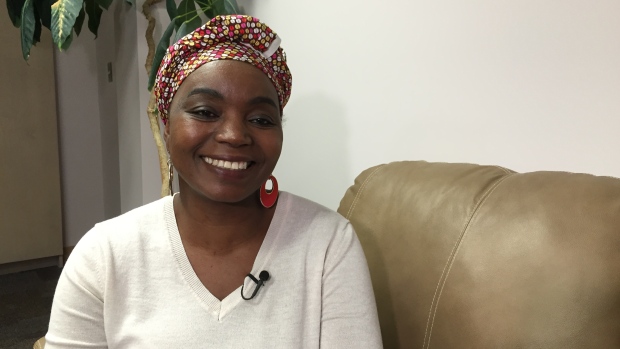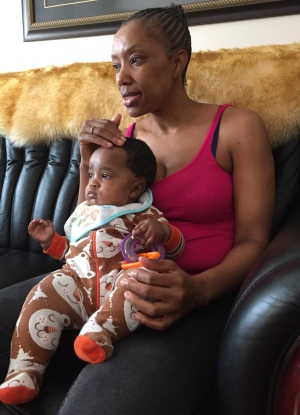‘It’s surprising how we always want to look for difference where there’s actually a lot of similarity’
By Sima Sahar Zerehi, CBC News

Francisca Mandeya gets teary-eyed when speaking about her three kids. She came to Nunavut as a refugee from Zimbabwe just over a year ago but she couldn’t bring her children with her.
“Sometimes life doesn’t give you a choice,” said Mandeya. “I was in a position that I didn’t have a choice but to leave.”
Mandeya came to Canada as a refugee because she was afraid for her life. Back in Zimbabwe, she was an activist working on women’s rights issues, environmental campaigns and peace initiatives.
“I’m such a loud mouth; I can’t keep quiet when something’s wrong,” she said.
Tina Nleya, Mandeya’s younger sister, encouraged her to join her in Nunavut.
“Some of her friends had been arrested because of the same work that she was doing, so I became concerned,” said Nleya.
“I thought I may just lose my sister.”
As part of her activism, she released a 12-track album singing about the social and political problems in Zimbabwe.
“Music is a powerful force that can transform minds,” said Mandeya. “It can cause change.”
‘A 100 degrees Celsius temperature change’
Being a newcomer in Nunavut is not easy. Even simple things like walking to work can be a challenge for someone new to winter in the North.
“It was shockingly cold, like a 100 degrees Celsius temperature change for me,” said Mandeya.
She added that it takes a shift in perspective to acclimatize.

“It’s a question of attitude. Like, I’m here, so if my sister can survive here, it means I can also survive.”
The cost of living is another challenge. Mandeya juggles two jobs. Her day job is with the Government of Nunavut as a senior advisor in business development. At night, she’s a cashier with Arctic Ventures.
“Food is expensive, rent is expensive. And I’m a single mom of three, so I have to look after my own, so most of my money is going back home and we know that the Canadian dollar has fallen quite substantially in the past year, so that means I have to work extra hard,” said Mandeya.
With three kids still in Zimbabwe, Mandeya says she has to parent via social media.
“We keep in touch on What’s App, Facebook, occasional calls. It’s difficult to call home from here,” said Mandeya.
“It’s not easy parenting over social media but that’s the best I have so far.”
Mandeya said she hopes that in the next few years she can bring her 17-year-old son to Canada, and she’s hopeful that one day her 22- and 24-year-old daughters can also join them.
Click here to read the rest of this story on CBC.ca





An inspiring story of resilience and adaptation. Francisca Mandeya’s journey highlights the strength of embracing new challenges while staying true to one’s roots. block blast adventure